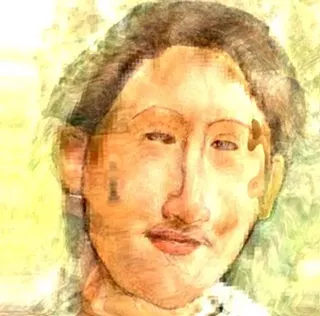"That's the only good thing that has resulted from imperialism and colonization," says Williams during a conversation about how his tour demonstrates that the former imperialists have themselves been culturally colonized by the Third World. "And it's to the benefit of Europe, to the benefit of the old imperial powers. Their cultures have been enriched by these countries."
Williams and friends--John Etheridge on acoustic steel-string guitar, Paul Clarvis on hand drums and percussion, Richard Harvey on flutes and whistles, and Chris Laurence on double bass--are coming to Centennial Hall October 16 to perform music from their CD The Magic Box. It's a combination of traditional African pieces and new, original works by Williams and others inspired by elements of African music.
This sort of thing goes over very well these days--in America and Europe. But such efforts are not always well received in Africa and Asia. Chinese-born Bright Sheng, one of the most significant composers currently based in America, got raves during the recent New York run of his cross-cultural work Silver River. But it had been panned during a previous Southeast Asia tour, where people found Sheng's appropriation of ancient folk melodies disrespectful.
Five years ago, when Williams began assembling the pieces of his African project, he worried that he'd be regarded as a cultural interloper. He took this up with Francis Bebey, a Cameroon guitarist-singer-ethnomusicologist who ultimately contributed five compositions to the CD. "I used to say to him at the beginning that I was nervous that five white guys from north London aren't going to play African music like Africans. He said, 'Of course you're not; everyone plays the music in his own way. But that's a compliment to us as Africans, that others are going to pick up our music and play it in their own way.' And I have to say, all my friends from Ghana and Senegal and Cameroon and South Africa really, really love the idea of us playing their music."
Williams does it his way most explicitly in a piece like "Musha Muziki," which employs African rhythms as the basis of his own improvisation. Other items come straight from a specific source and emerge fairly intact, such as "Masanga" by the Zaire-born 1960s African-blues guitarist Jean "Bosco" Mwenda.
Although the Portuguese introduced the guitar to parts of Africa more than 500 years ago, the instrument didn't become integral to the continent's music until the 20th century; Africa already had plenty of plucked-string instruments of its own, thank you. But once the guitar finally caught on, it found its way into dozens of styles of African music.
"It would be a mistake to generalize too much about African music," Williams warns. "Africa is an enormous continent with an equally enormous variety of musical cultures. Even within Senegal, in the northern parts of the country the music and the timbre of the voices are quite Moorish, but then you come to the south and central areas of Senegal and you get what we think is the more typical kind of Senegalese music, based on the kora, the big harp-lute, which they play. And we must remember that the countries themselves are colonial divisions; the French and the English and the Belgians left these imperial divisions which rode roughshod through tribal areas and different cultures."
Williams says that although he had to learn new styles and techniques as he became serious about performing African music, some of the material seemed oddly familiar.
"A lot of the township music in South Africa sounds like Irish music because they use whistles," he says. "As soon as you have pentatonic tunes and dances in 6/8 played by a whistle, you think of something Irish; but there are many places in the world with music like that."
Although Williams was born in Australia (in 1941) and lived there until he was 10, he never had a chance to hang out with, say, didgeridoo players because Aborigine culture was strictly segregated from white society. Under the tutelage of his father and, later, Andres Segovia, Williams spent his youth focusing on classical guitar; his interest in world music didn't have a chance to develop until he was an adult.
Williams is best known for his performances and recordings of classical music, from Bach to Brouwer and beyond, but his musical interests are diverse. He has incorporated Greek and Turkish rhythms and harmonies into an album of Medieval music, and played electric guitar in the classical-rock fusion band Sky.
"It's all part of the same thing for me," he says. "I believe that there are many musical cultures throughout human history which are all equal, in the sense that they all have their own original characteristics, which are equally valuable."
He notes as prime examples the "subtlety and range of expression" of the melodies of solo wind instruments in Asia, and the rhythms of African music.
"What you get in European music is an equal development of melody, rhythm and harmony, and that is Europe's unique cultural development. But one must remember that it comes at a price, as everything does, and the price is that in order to combine the melody and the rhythm equally with harmony, ultimately you sacrifice the expressive possibilities within melody and the rhythmic expression of movement, or the expression of movement in rhythm. In playing African music there's a whole lot of things one must learn in the feel of rhythm and how to play it, and that benefits one's general playing, including Bach or Scarlatti or any European music."








